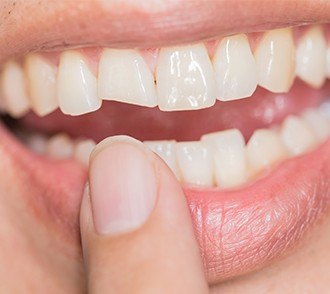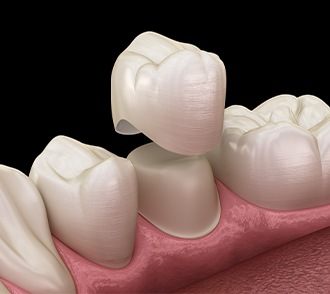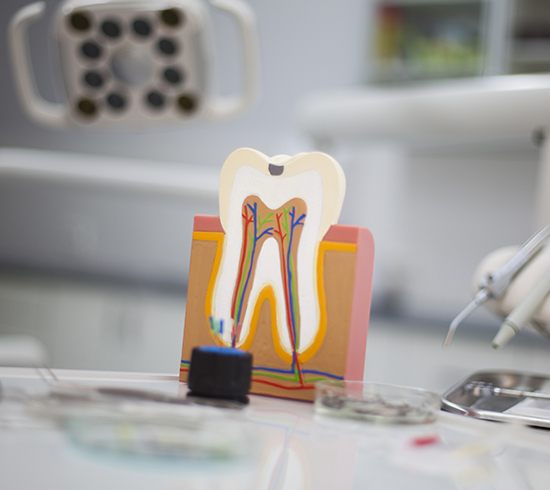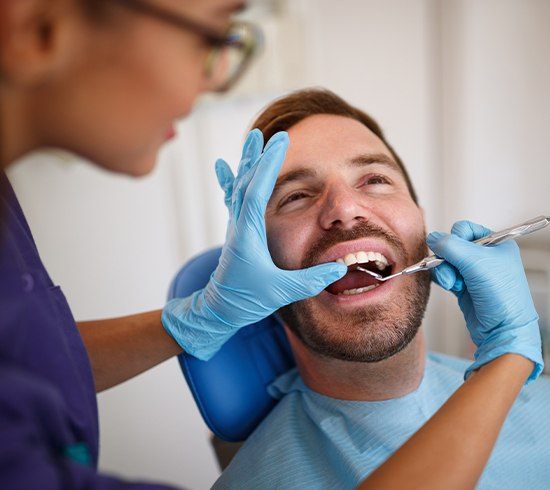Emergency Dentistry – Harlingen, TX
Same-Day Solutions for Hurting or Damaged Teeth

Compassion Dental of Harlingen prides itself in being able to see patients as soon as possible whenever they require emergency dental care. Dr. Guillen will work quickly to figure out what’s causing your pain and what needs to be done to save your smile. Our office also offers various amenities to help you stay calm and comfortable during your emergency visit. Call us right away to make sure your teeth and gums get the care and protection they need.
Why Choose Compassion Dental of Harlingen for Emergency Dentistry?
- Same-Day Emergency Appointments
- Patients Seen Promptly on Time
- One Stop for Comprehensive Care
How to Handle Common Dental Emergencies

Your dental emergency might be something that happened all of a sudden, or it might be the end result of unchecked dental decay. Regardless of the cause, you need to take action before the problem grows worse. When you call our office, you should describe your situation as fully as possible so that we can give you first aid tips. Below is some general advice for dealing with some of the most common dental issues that require immediate attention.
Toothaches

Check to see if there’s anything caught between your teeth. Bits of food and other debris can be removed with dental floss. For other types of pain, you can hold a bag of ice over the area and take an over-the-counter pain reliever until you reach our office and can have a proper examination performed.
Chipped/Broken Teeth

Look for any broken off pieces of the tooth and store them in a safe container. Check the remaining dental structure and place dental wax or a wet cotton ball over any rough edges that could potentially irritate or cut the soft tissues inside of your mouth. Do not bite or chew with the damaged tooth.
Knocked-Out Tooth

Try to get to our office within an hour of the tooth being knocked out. In the meantime, you should try to preserve the tooth by either placing it back in its socket or keeping it in a container of milk or saline. When handling the tooth, only touch the crown; do not grab the root.
Lost Filling / Crown

Clove oil can help relieve the sensitivity of an exposed tooth. If you lost a crown that is still intact, rinse it off and try to put it back in place. Toothpaste can work as a temporary adhesive, and you can hold the crown on the tooth by keeping your mouth shut as much as possible.
Root Canal Therapy

Once a tooth has become infected, the damage will continue to spread until the entire dental structure is compromised. However, the tooth can be saved if the infected tissue is removed via root canal therapy. Don’t be afraid; contrary to its reputation, root canal therapy isn’t painful. In fact, it would be more accurate to say that it helps stop pain. Note that you will most likely receive a crown at the end of the procedure to protect the tooth.
Tooth Extractions

Saving your damaged teeth is always the ideal solution, but an extraction may have to be performed if normal restorations and root canal therapy are no longer enough to reverse the damage. Some extractions are simple, but if the tooth has broken off below the gumline or has become impacted, a surgical approach might be required. We can discuss different methods of tooth replacement depending on your health and the number of teeth being removed.
How to Prevent Dental Emergencies

- Brush and floss your teeth every day. Use a fluoride-based toothpaste and a soft-bristled toothbrush that will not damage the enamel.
- Visit our office for routine checkups and cleanings every six months.
- Wear a protective mouthguard while playing sports or exercising.
- Be gentle with your teeth; don’t bite down on ice, popcorn kernels, fingernails, pen tips, pencils, or anything else that’s hard.
- Never open packages with your mouth; use scissors or another appropriate tool instead.
The Cost of Treating Dental Emergencies

The cost of emergency care isn’t set in stone. You would not expect the same cost for a simple filling as you would for root canal therapy or an extraction. We will select the services that we feel best suit your needs, and we’ll explain the costs associated with them so that you aren’t caught off guard when it’s time to pay. Dental insurance will normally at least partially cover most forms of restorative care.
